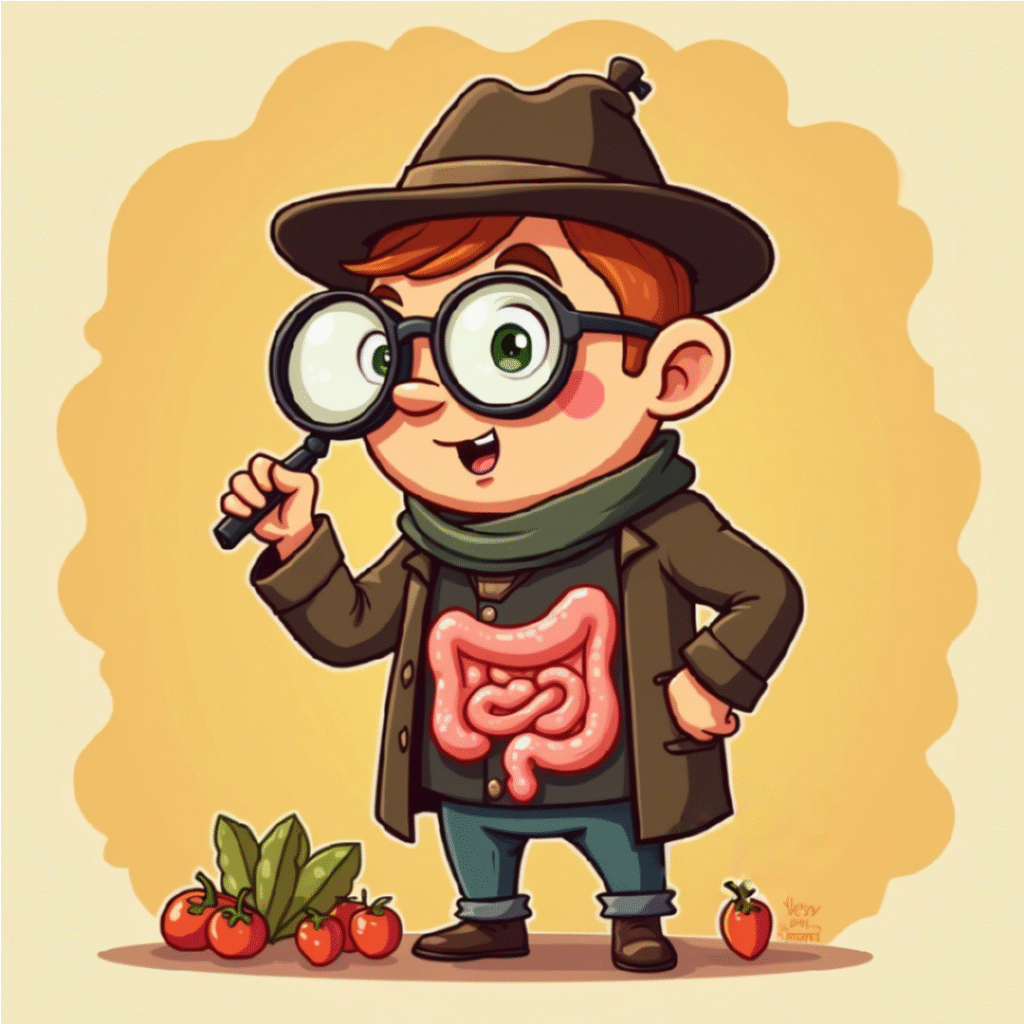
If you’re living with diverticulitis, you already know that managing it feels like trying to solve a medical mystery. It’s a frustrating cycle: a sudden flare of pain, a scramble for relief, and then the inevitable question—what triggered this? The truth is, no medical test can answer that question for you. Only one tool can: Your symptom journal.
Think of yourself as the lead Food Detective, and your journal is the case file that cracks the code. This isn’t just busywork; it’s the most powerful diagnostic and management asset you possess.
The Problem with “I Just Don’t Know”
When you visit your doctor or gastrointestinal (GI) specialist, they rely on objective data (CT scans, blood tests) to confirm the presence of inflammation. But when it comes to preventing the next attack, they rely entirely on the information you provide about your daily life.
Often, patients only remember the big meals or the obvious mistakes. They forget the late-night snack, the extra cup of coffee, or the stressful lunch break. This incomplete picture can lead to:
- Vague Diagnosis: Without clear trigger patterns, your doctor might lump your pain in with Irritable Bowel Syndrome (IBS) or simply label it “unspecified GI distress,” leading to ineffective management.
- Unnecessary Restrictions: Fear can cause you to eliminate half your diet. A journal provides the evidence to confidently reintroduce foods that are actually safe for you.
- Delayed Relief: Identifying your personal trigger takes longer, meaning more time spent experiencing uncomfortable or debilitating symptoms.
Three Crucial Clues Only Your Symptom Journal Can Uncover
Your goal with your symptom journal is to collect detailed clues—not just to figure out what caused the last flare, but to prevent the next one. Here are the three most critical connections your Food Detective work will reveal:
1. The Time-Delay Trap
Diverticulitis symptoms often don’t appear until 12 to 72 hours after you’ve eaten the offending food. This lag time makes it nearly impossible to rely solely on memory.
- Journal Clue: You log a large salad with raw spinach on Tuesday afternoon. You feel fine on Wednesday. Then, on Thursday morning, you wake up with that familiar, dull ache. Your symptom journal allows you to connect the dots that your memory couldn’t.
2. The Quantity Clue
Sometimes the food itself isn’t the enemy; the amount is. You might tolerate a quarter-cup of cooked carrots, but a whole bowl sends you into a flare. This critical detail is completely lost without meticulous tracking.
- Journal Clue: You track that small amounts of almonds are fine. One day, you get distracted and eat an entire handful. You log the quantity, and when symptoms arise, the pattern emerges: your threshold for nuts is low.
3. The Stress and Symptom Correlation
Your gut is heavily influenced by your mind (the gut-brain axis). A flare isn’t always about food—sometimes, it’s about stress, sleep, or medication. By logging these lifestyle factors alongside your diet, you provide a holistic picture.
- Journal Clue: You log a week of perfect, high-fibre eating. Yet, a flare starts. Looking at your log, you see that you averaged five hours of sleep and had three major work deadlines. The trigger wasn’t food; it was exhaustion and stress.
How to Start Tracking Like a Pro
To make your symptom journal effective, you need to go beyond just listing your meals. Use this structure for maximum impact:
| Category | What to Log | Why It Matters |
| Diet | Every meal, snack, beverage, and supplement. | Reveals specific food and drink triggers. |
| Fibre & Water | Grams of fibre and ounces/liters of water consumed. | Directly affects stool consistency and colon pressure. |
| Symptoms | Pain level (on a 1–10 scale), location (lower-left quadrant), frequency, and type of bowel movement. | Helps differentiate a regular cramp from a true flare-up. |
| Lifestyle | Stress level, hours of sleep, type/duration of exercise, and all medications/timing. | Identifies non-dietary triggers and medication side effects. |
Your symptom journal isn’t homework; it’s your most important step toward regaining control. By consistently tracking your clues, you move from reacting to every flare-up to proactively preventing them. Start today—your digestive health depends on the detective work!
Want to learn more about Diverticulitis and how to manage it? We have more help here!
